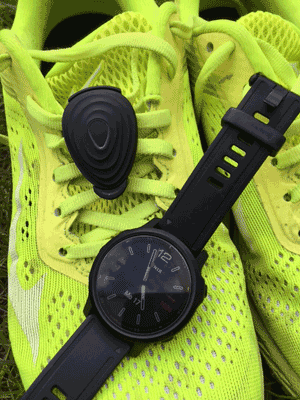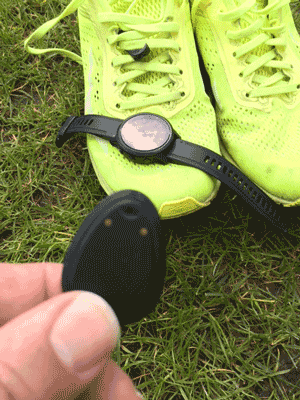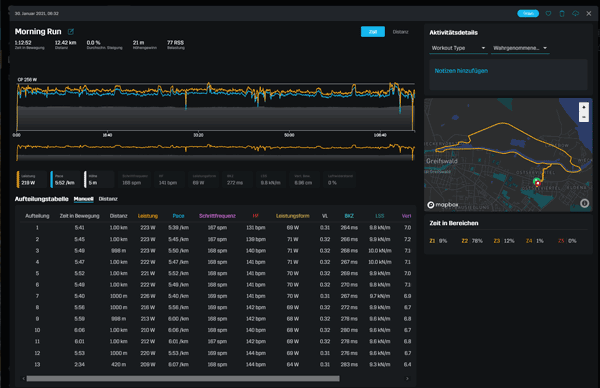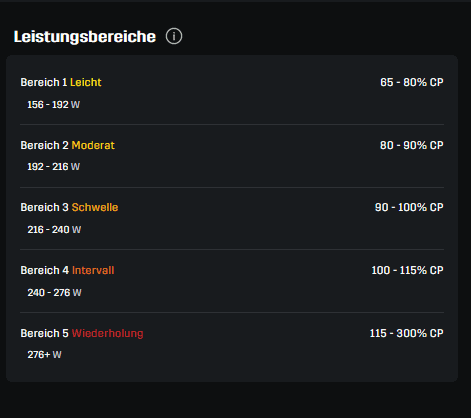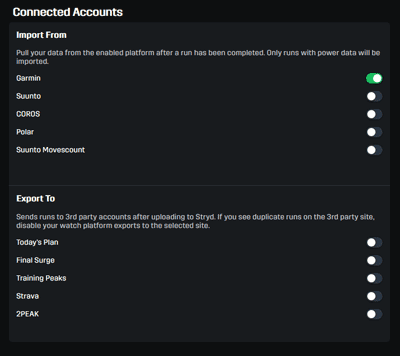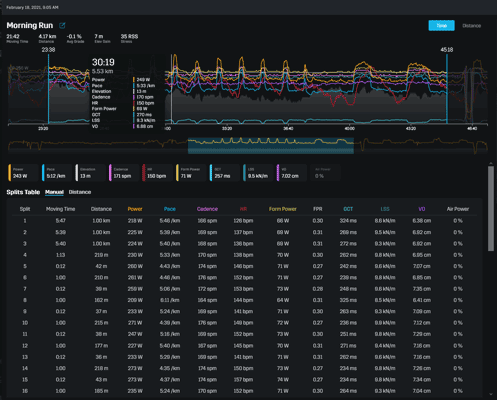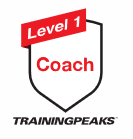Running Power Meter - Why is it good for your training?
Whether through better gear or a different training approach, seriously committed runners are always looking for new and effective ways to improve their performance. There is a unique and innovative performance tool available on the market in terms of collecting training data. The running power meter is the best training approach for those who want to get the most out of their training effort and time in this endurance sport. So, what is a power meter, and how does it work?
What is a Power Meter for running?
A power meter is a tool used to measure a runner's power output objectively. When it comes to running, it calculates the speed and force of a runner applied at a particular time. Measured in watts (or wattage), this tool provides estimates of speed.
The measurements from power meters depend on your preferred device brand. For instance, the affordable and industry-leading power meter, Stryd, provides running training metrics by measuring the motion patterns of your body. It also measures distance, speed, cadence, ground contact time, step time, flight time, foot strike and vertical oscillation you are running on.
All you need is to dial in your current weight, and the device will calculate the amount of power your muscles produce to run.
How do running power meters work?
The way these tools measure power varies based on the type of device you are using.
Running power meters use various sophisticated software programs combined with accelerometers to provide more accurate training data to measure your racing and training performance. Generally, the power metrics incorporated into our training revolve around the threshold. Threshold refers to the maximum power (wattage) your body can maintain as it removes the lactic acid produced by your working muscles.
Threshold is also the point at which your body starts recruiting more fast-twitch muscle fibers. As you train and work for longer durations above your threshold, you will feel a familiar 'burn' in your legs due to the accumulating lactic acid. Various athletes can increase the clearing potential of lactic acid in their bodies by spending a substantial amount of time training in specific ranges below and right at the threshold. This time ranges also helps in training the body to slow down the rate of carbohydrate utilization.
Through a competent coach, you can perform a test to acquire your functional threshold Power(FTP). If you want a further explanation about running power meters and how they work, we recommend reading the book Run with Power' by Jim Vance. This book provides insightful information on running with power meters and the different types of runners and training methods.
Advantages of using a running power meter
Enhanced running efficiency, form, and technique
Power meters help you better understand your running technique and form related to energy expenditure and running economy. It shows you how efficiently you are running and how much power you are using at a particular moment-understanding these details and metrics aid in smoothening running inefficiencies that could lead to fatigue as you race. Power meters also enable you to see how your energy output affects your form and technique in real-time. They also allow you to compare the energy output effects with other metrics like heart race and pace.
It provides more precise workout metrics.
As mentioned above, power meters provide objective measurement outputs, like pace and heart rate, as they happen at the moment. Heart rate is a psychological response to bodily stress and varies depending on medications, stress, amount of sleep, and temperature, among many others. Often, there is a lag in heart rate response, especially when you run uphill or downhill. Therefore, it may take a few seconds to catch up to the intensity demands as you race.
Thus, as power drops immediately, you begin running downhill; your body's heart rate remains high until it recovers from the stress of the climb. The same goes for pace measurements. Thanks to these exact workout metrics, it is easier for runners to attain their specific training goals, especially those related to high intensity. By adding power to other performance measurements, you can accurately deduce your Functional Power Threshold level.
Aids in targeting specific training zones
Power meters provide a realistic outlook on your training progress and enable you to measure the exact amount of stress you put your body through during workouts. In turn, you can accurately track your fitness progression and target any training zones you may come across. Thus, you can plan your speed sessions, intervals, tempo, as well as active recovery workouts.
Pacemaker
Running power meters also allow you to dial in your power zones and use that number to train or race, as long as you know your FTP. This tool will enable you to learn how to maintain a constant effort and optimal pace, whether running uphill, on windy terrain, or on a trail road. It is the perfect alternative for people who run long-distance races, like marathons and triathlons, and people who enjoy steady-state workouts, where it is vital to calculate energy expenditure to prevent running out before crossing the finish line.
Garmin
Polar
Coros
Suunto 3
Disadvantages of some running power meters
Although running power meters are very effective, they still have some products disadvantages. STRYD is currently the only power meter that actually takes wind into account. While running headwind, you have to work harder to sustain a constant power output. Alternatively, you do not have to use as much energy when running tailwind since you will be running and pushed along. Although it is not a significant factor, it may still affect ultrarunners' performance, causing it to become an issue from time to time.
Another disadvantage of using a running power meter is that they require a certain level of expertise to operate them. Users must learn the importance of each data entry point and how it influences their performance. As a result, using a power meter is a long, detailed, and complex process.
Conclusion
If you search for an efficient yet exciting approach to improve your running training and performance, running Stryd running power meter is an ideal option. They use detailed data analysis to assist you in creating a consistent training approach at a competitive price. Although they are relatively new in the running space, these tools are easy to use and provide helpful information about your running technique and form.





